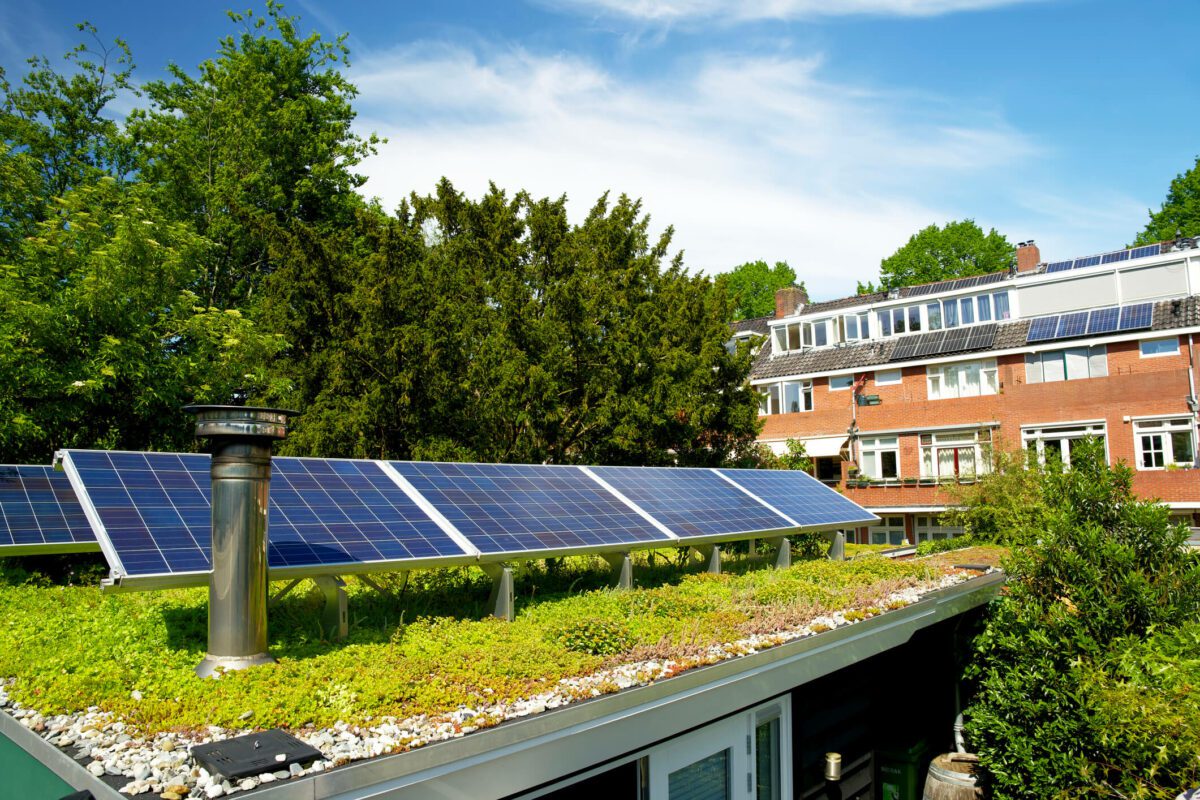In the past couple of months, one topic that has been under the Dutch spotlight is the net-metering scheme. Since last year, the government has been in deliberation, and many have been eagerly awaiting the final decision, which came into focus recently.
What’s net metering, anyway?
Introduced in 2004, net metering is a utility billing mechanism enabling customers who generate their own power to receive credit for the electricity they contribute to the grid, typically through solar or wind power. This system is particularly beneficial for solar power generated during the day and wind power generated at night, as the timing of power generation is not a factor.
How does net metering work?
Net metering has significantly promoted small-scale, distributed renewable power generation, especially among homeowners. For instance, a homeowner with solar panels installed on their roof can feed surplus power into the grid during the day while they are away. Later, when they return home and use electricity for various activities like lighting, cooking, or watching TV in the evening, the energy consumed is offset by the earlier generated surplus. Consequently, at the end of the billing cycle, the homeowner may find their billable kilowatt-hour usage close to zero. While this setup appears advantageous for consumers, electric utility companies may hold differing perspectives on its implications.
The Dutch dilemma
With differing opinions on the issue, the government came forward with a proposal to phase out the net-metering scheme. Their rationale included the increasing popularity of solar panels and the diminishing tax revenue due to the scheme—approximately €2.8 billion by 2031 and over €700 million annually after that.
Despite a decision to abolish the scheme being made back in 2017, it faced multiple postponements, echoing the ongoing debate surrounding its fate.
The decision unveiled

In recent developments, the Dutch senate chose not to support the cabinet’s plan to phase out the net-metering scheme. With mixed reactions to the decision, one thing is certain, the decision brings a sense of clarity, providing consumers with certainty regarding their financial outlook and offering installers a clearer insight into the future.
Why the controversy?
Utilities in both regulated and deregulated states have very high fixed costs used to cover the expense of building, operating and maintaining an energy distribution system. These cover building, operating, and maintaining the distribution system, including poles, wires, meters, and other necessary equipment. These costs ensure reliable power delivery to all customers, regardless of weather conditions, and require ongoing investment in new technologies.
Larger utility customers usually pay for their share of these fixed costs in their demand charge (dollar per KW)—a function of their peak usage in any 15-, 30- or 60-minute period, depending on the utility. However, most residential and smaller customers pay only a small fixed monthly charge with all other utility costs built into their charge per kWh. This means that when a customer offsets purchased power with generated kWh to net out at nearly zero kWh billed, they are not contributing to the fixed costs required to maintain the system upon which they rely. As more customers take advantage of net metering, fewer fixed costs are paid into the system, resulting in higher rates for non-net metering customers.
Amid concerns about climate change, governments are encouraging renewable energy growth, such as solar and wind power, and in the Netherlands, net metering has helped speed up this transition. However, utilities and state regulatory commissions recognise the challenge of fixed costs and imposed caps on net metering. As demand for net metering rises, some utilities have or will reach these limits. If caps are lifted, more customers may invest in small-scale generation, further reducing their contribution to fixed costs. If caps stay, renewable energy growth may slow, conflicting with government policies. This situation presents winners and losers, with the potential for alternative solutions, although finding one looks uncertain.
What’s next?
While the decision not to phase out the net metering scheme may have finally offered some clarity, it still remains a shortsighted one. Energy suppliers will create their own methods to compensate for the higher costs of solar panels in their portfolio, and this will, in turn, continue to create insecurity for customers.
At Solar Monkey, we think that the removal of the scheme is inevitable and, in the end, a great move – for three reasons:
- It will financially stimulate consumers to help balance the grid because energy fed back into the grid will not be compensated with the same value as the cost of the energy used. This will improve the business case for home energy storage systems. Currently, consumers are encouraged to feed electricity into the grid at any moment of the day, even with negative energy prices and excess energy supply. This is not a sustainable situation.
- If the feed-in tariff of (solar) energy is okay, then the business case for solar will be good enough, as prices of solar will continue to go down.
- Electricity suppliers will (have to) push costs on customers, which will create an atmosphere of complexity and uncertainty for the consumer. This will diminish the value of continuing the net metering scheme.
Solar Monkey’s perspective

Solar Monkey supports the gradual discontinuation of the existing scheme. Under the current arrangement, the Netherlands faces challenges in advancing its energy transition efforts. The scheme fails to incentivise consumers to self-consume or store their solar energy, exacerbating issues within the energy grid. While phasing out the net metering scheme may impact end-consumers financially, it’s essential to consider the broader perspective.
In conclusion, we believe the net-metering decision to be a shortsighted one. While it may please some customers in the short term, it does nothing to prepare us with a more balanced and sustainable grid. A balanced energy grid is of paramount importance to drive the energy transition further.
Your thoughts?
The journey continues, and we invite you, our valued stakeholders and followers to share your thoughts on this pivotal decision. The net-metering debate may have reached a milestone, but your insights contribute to the ongoing narrative of the energy transition.



